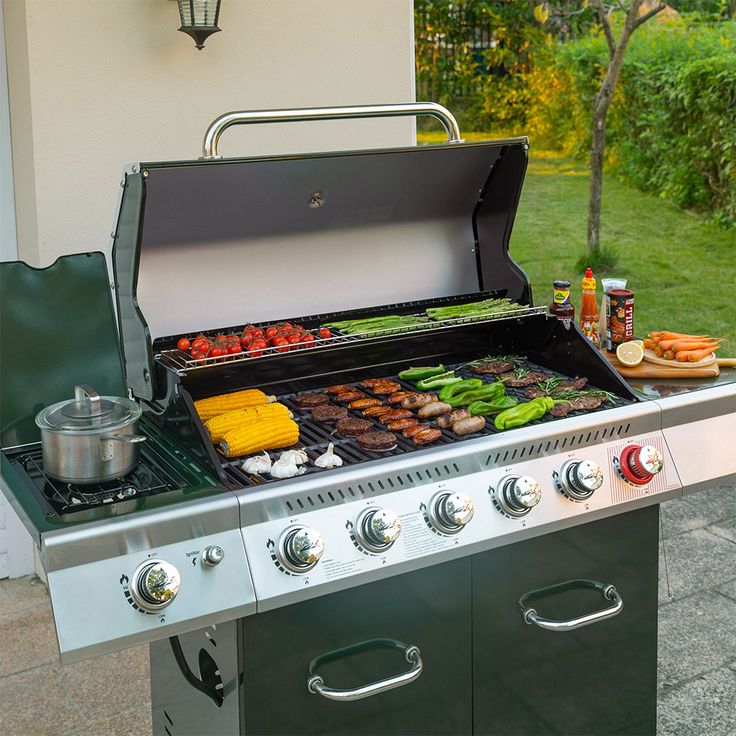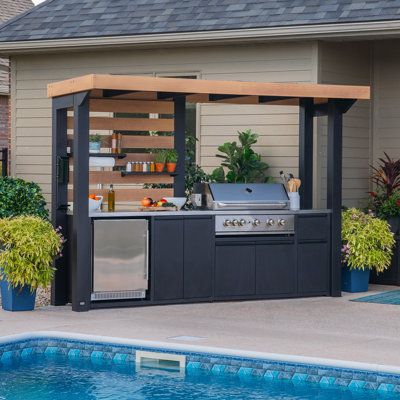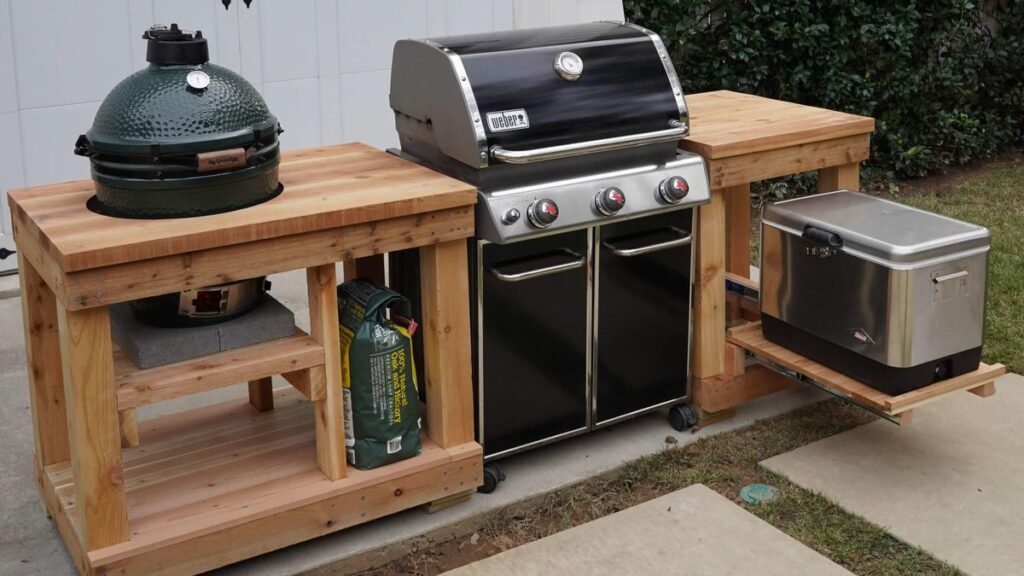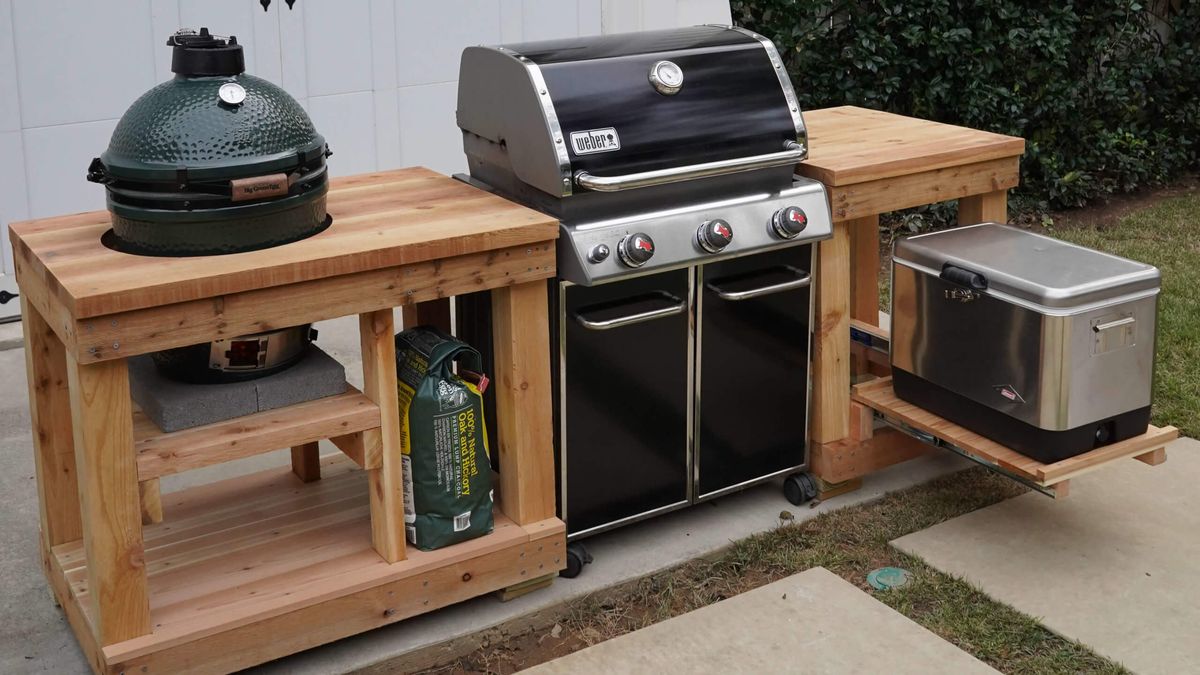Grill nights often end with smoke, ash, and long waits. Many backyard cooks give up because of hassle and mess instead of enjoying tasty meals.
Gas grills deliver fast ignition, steady heat, and simple cleaning. Compared to charcoal or pellet options, they offer more control, less work, and reliable cooking every time.
If you want flavor without fuss, a gas grill can be your best choice. The sections below show why gas grills stand out, how they compare, and what buyers should know.
What makes gas grills different from others?
Grill buyers often get confused by too many options. Each grill type works in a unique way and gives food a different flavor.
Gas grills use burners powered by propane or natural gas, making them faster, cleaner, and easier to control compared to charcoal or pellet grills.

Key differences between grills
| Grill Type | Fuel Source | Heat Control | Flavor Profile | Maintenance |
|---|---|---|---|---|
| Gas Grill | Propane/Natural Gas | High precision | Clean, mild | Easy |
| Charcoal | Charcoal briquettes | Manual, less precise | Strong smoky | Messy |
| Pellet | Wood pellets, electricity | Automated control | Rich smoky | Medium |
Gas grills stand out because of quick heating, precise knobs, and no ash cleanup. They allow steady cooking temperatures for burgers, steak, or vegetables. Charcoal grills can reach high heat but need longer prep and cleanup. Pellet grills give good smoky taste but depend on electricity and pellet supply. Buyers who want reliable everyday cooking often find gas grills the most practical choice. They save time, reduce stress, and still give food a charred finish without constant monitoring.
Why are gas grills easier to use?
Many people avoid grilling because setup feels stressful. Lighting coals or filling pellets often delays cooking.
Gas grills start with the turn of a knob and ignite instantly, giving cooks less waiting and more eating time.
Gas grills remove common struggles. Charcoal takes about 20 minutes to heat, while gas grills need only a few minutes. Pellet grills need electricity, fans, and pellet loading, which may feel complicated. With gas, there is no smoke cloud or messy ash. Cooks only adjust burners, close the lid, and watch food cook evenly. This is why busy families and casual grillers pick gas grills. They are easy for beginners and still powerful enough for experienced cooks.
Do gas grills save cooking time?
Backyard cooking often takes longer than expected. Guests wait while the fire builds, and food gets delayed.
Gas grills preheat in minutes, giving faster cooking and less downtime compared to charcoal or pellet grills.

Gas burners reach 500°F quickly. Charcoal needs time to turn white-hot before food can be placed. Pellet grills heat slower because they depend on fans and augers. With gas, you can grill a weeknight dinner without stress. The consistent heat means fewer flare-ups and less chance of food burning on the outside but raw inside. Time savings make gas grills more practical for small family meals as well as large gatherings.
How do gas grills control heat better?
One of the biggest frustrations in grilling is uneven cooking. Some burgers burn while others stay raw.
Gas grills give precise control with burner knobs, creating steady heat zones that charcoal and pellet grills struggle to match.

Heat control comparison
| Grill Type | Heat Adjustability | Zones Possible | Best For |
|---|---|---|---|
| Gas Grill | Instant knob control | 2–6+ burners | Flexible meals |
| Charcoal | Manual airflow | Limited zones | Slow smoking |
| Pellet | Digital control | Limited zones | Smoking meat |
Gas grills make it simple to cook different foods at once. One side can sear steaks while another keeps vegetables warm. Charcoal requires moving coals or adjusting vents, which takes effort. Pellet grills often maintain steady low heat but may not reach high searing temperatures. The direct control of gas burners ensures reliable results even for beginners.
Are propane and natural gas grills different?
Buyers often wonder if fuel choice changes the taste or cooking style.
Both propane and natural gas grills work the same way, but propane offers mobility while natural gas gives endless fuel supply.
Propane grills use portable tanks, which can be refilled or swapped at local stores. They are perfect for patios, camping, and tailgating. Natural gas grills connect to home gas lines, offering nonstop fuel without tank refills. The cooking results are nearly identical. The choice depends more on convenience and setup. Families who grill often at home may prefer natural gas, while those who need portability usually pick propane.
What features should gas grills include?
Many buyers focus only on size, but features can shape the cooking experience.
Good gas grills include durable burners, solid grates, a grease system, and sometimes extras like side burners or lights.
Must-have features in a gas grill
| Feature | Why it matters |
|---|---|
| Stainless steel burners | Last longer, resist rust |
| Porcelain-coated grates | Easy cleaning, better searing |
| Grease tray | Prevents flare-ups |
| Side burners | Warm sauces or cook sides |
| Thermometer | Monitors cooking temperature |
Optional features like LED knobs, rotisserie kits, and infrared burners add flexibility but may raise the price. A strong warranty also signals durability. Buyers should balance features with budget but always check for quality materials and safe design.
How long do gas grills usually last?
Buyers want to know if a grill will last more than a few seasons.
With proper care, most gas grills last 5–10 years, and higher-end models with stainless steel can last even longer.
Longevity depends on usage, materials, and maintenance. Stainless steel frames resist rust better than painted steel. Cast iron grates last long but need oiling to prevent corrosion. Regular cleaning of burners, grates, and grease trays prevents early breakdown. Covering the grill when not in use also extends life. A gas grill is a long-term investment when treated well.
Are gas grills safer than charcoal grills?
Safety is a key concern for many families, especially with kids around.
Gas grills are safer because they produce no sparks or open ash, and their flames are easier to control.
Charcoal fires can flare unexpectedly and spread embers. Pellet grills need electricity, which adds another risk in wet weather. Gas grills, with proper checks on hoses and valves, reduce hazards. Always keep the lid open when lighting, check for leaks, and store propane safely. Following basic rules ensures safe outdoor cooking without accidents.
What foods cook best on gas grills?
Many cooks ask if gas grills limit flavor.
Gas grills cook almost everything from steaks and burgers to vegetables and seafood, while offering reliable searing and steady heat.
Gas grills excel at direct cooking. Steaks get seared fast while chicken cooks evenly without burning. Vegetables, fish, and even pizza can be grilled with the right settings. For extra smoke, wood chips or smoker boxes can be added. This flexibility makes gas grills the most versatile option for everyday use.
When should you replace your gas grill?
Even with care, grills do not last forever.
Replace your gas grill when burners corrode, ignition fails often, or repairs cost more than a new model.
Signs include uneven flames, rust holes, and gas leaks. If parts are unavailable or too costly, replacement is better than repair. Frequent grillers may notice wear faster, while occasional users can stretch usage longer. Safety should guide the decision—never keep a grill that risks fire or gas leaks.
Conclusion
Gas grills give speed, control, and safety, making them the best choice for most homes.
FAQs
Is a gas grill better for beginners?
Yes. Gas grills are easier to light, control, and clean, making them the best choice for first-time grillers.
Do gas grills give smoky flavor?
They give mild flavor, but smoker boxes with wood chips can add strong smoke taste if desired.
How many burners should a gas grill have?
For small families, 2–3 burners are enough. For large groups, 4–6 burners provide better cooking zones.
Can you use gas grills indoors?
No. Gas grills must be used outdoors in open areas to avoid fire and carbon monoxide risk.
What is the best time to buy a gas grill?
End of summer and holiday sales often give the best prices, but reliable models are available year-round.
Are stainless steel grills worth it?
Yes. Stainless steel resists rust and lasts longer than painted or powder-coated models.
Do gas grills work in winter?
Yes. Gas grills heat fast even in cold weather, though keeping the lid closed helps maintain heat.
Can I convert propane grills to natural gas?
Some models allow conversion with a kit, but it should be done by a licensed professional for safety.

